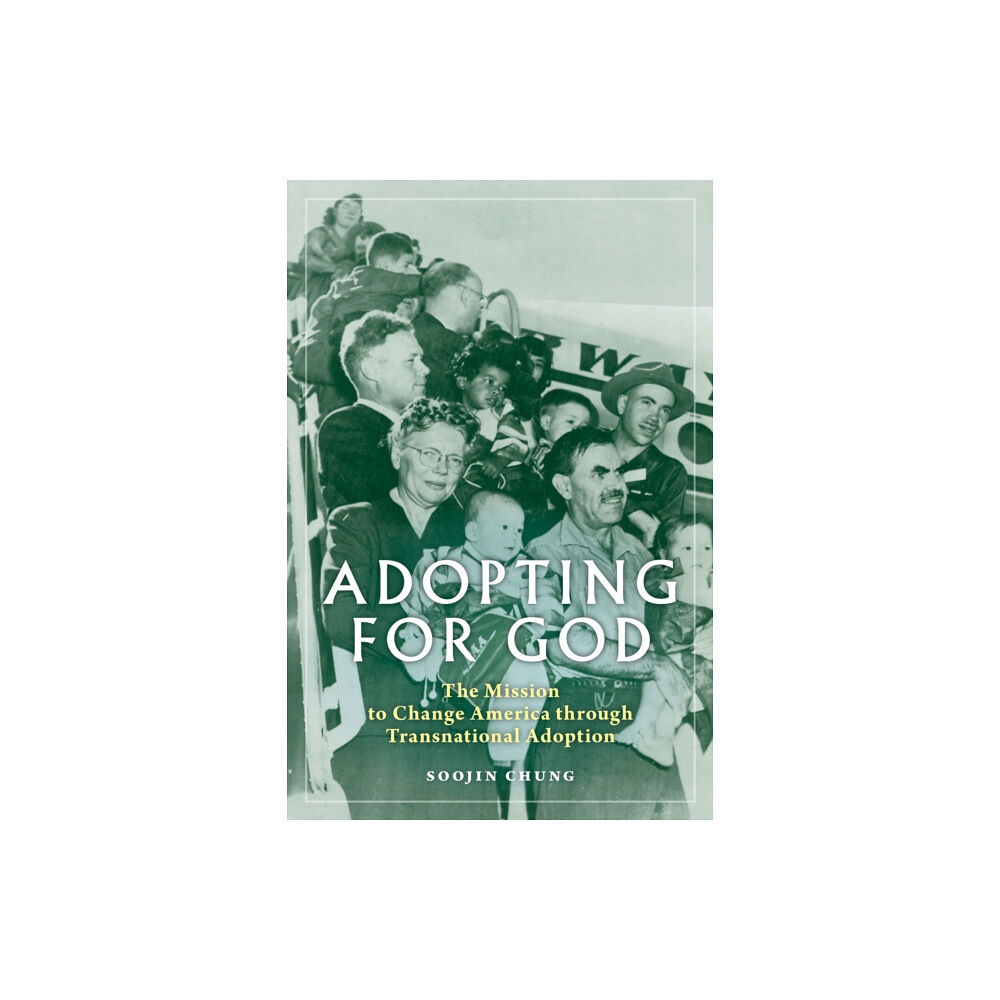Explores the role played by missionaries in the twentieth-century transnational adoption movement Between 1953 and 2018, approximately 170,000 Korean children were adopted by families in dozens of different countries, with Americans providing homes to more than two-thirds of them.
In an iconic photo taken in 1955, Harry and Bertha Holt can be seen descending from a Pan American World Airways airplane with twelve Asian babies—eight for their family and four for other families. As adoptive parents and evangelical Christians who identified themselves as missionaries, the Holts unwittingly became both the metaphorical and literal parental figures in the growing movement to adopt transnationally.
Missionaries pioneered the transnational adoption movement in America. Though their role is known, there has not yet been a full historical look at their theological motivations—which varied depending on whether they were evangelically or ecumenically focused—and what the effects were for American society, relations with Asia, and thinking about race more broadly.
Adopting for God shows that, somewhat surprisingly, both evangelical and ecumenical Christians challenged Americans to redefine traditional familial values and rethink race matters. By questioning the perspective that equates missionary humanitarianism with unmitigated cultural imperialism, this book offers a more nuanced picture of the rise of an important twentieth-century movement: the evangelization of adoption and the awakening of a new type of Christian mission.
| Format |
Häftad |
| Omfång |
232 sidor |
| Språk |
Engelska |
| Förlag |
New York University Press |
| Utgivningsdatum |
2021-12-14 |
| ISBN |
9781479808854 |

